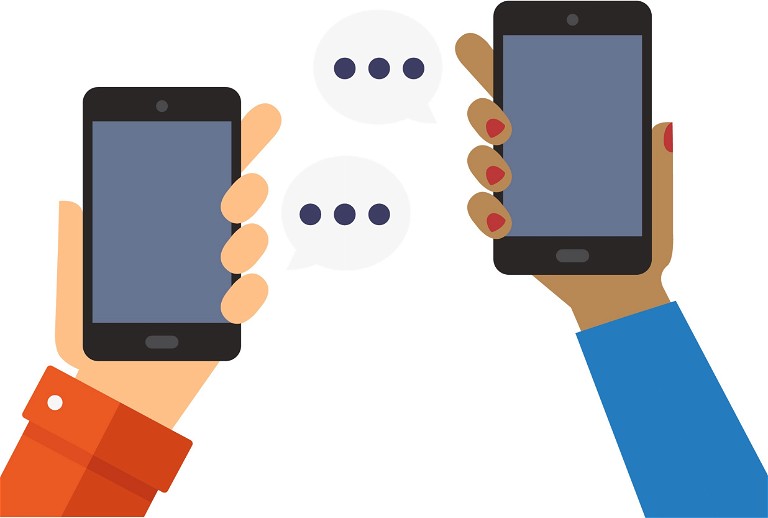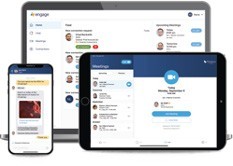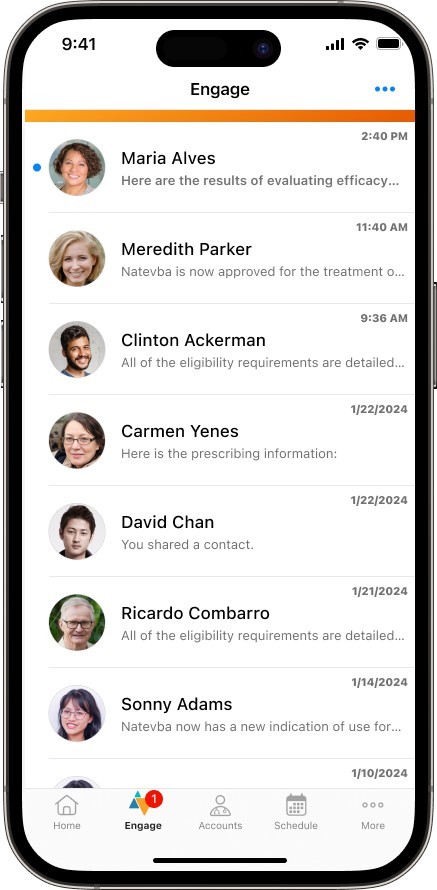Industry Insight
Compliant connections: making instant messaging work for biopharma field teams
Sebastien Noel from Veeva Systems considers the potential benefits and drawbacks of messaging services for HCPs as well as explaining Veeva’s own platform, which combats these issues

Instant messaging apps are often the go-to method for keeping in touch with friends, family and colleagues. Some biopharma field teams now routinely use these consumer-grade chat applications to stay in contact with healthcare professionals (HCPs), even though the rules in a professional environment are different and can have serious consequences if ignored.
There are significant financial and reputational risks to non-compliant record keeping. In 2022, the United States Securities and Exchange Commission (SEC) fined 11 of the world’s largest banks between $16m and $125m each for using unauthorised messaging apps, violating record-keeping rules and engaging in ‘pervasive off-channel communications’.1 Instead of keeping a record of their text messages, many bank employees deleted conversations entirely.
Text communications must be retained and monitored for auditing purposes in highly regulated industries like finance and biopharma. This requires capabilities for capturing, timestamping and archiving messages and associated metadata.
Putting the right guard rails in place
Instant messaging can bring tangible benefits to HCP engagement. ‘Push’ activities often become more effective using instant messaging: recent findings show that compliant chat messages have an 80% read rate, compared to an open rate of just 40% for field-generated emails. Chat messages also have three times the click-through rate of email (40% vs 16%), underscoring the value of getting this right.
Veeva Pulse data also indicates higher field team responsiveness through chat: over 90% of reps answer customer queries within five minutes.2 On the pull side, HCPs initiate 30% of the conversations when given access to compliant chat. As their questions are answered immediately, they can confidently prescribe a drug instead of being limited by insufficient information.3
Given strict EFPIA regulatory requirements relating to language and record keeping, even seemingly simple instant messages must adhere to current data privacy regulations and ethical rules. In a survey conducted by the life sciences learning platform, Citeline, for ATCO, 92% of biopharma professionals surveyed said the practice of field reps using unapproved content has a direct negative impact on the company.4 When asked why field teams use unapproved content, respondents cite a lack of understanding of the risks, being overwhelmed by the volume and complexity of content or struggling to find or access approved content.
Instant messaging can help recapture lost prescriptions by raising and resolving HCPs’ queries through speedy service, as long as all interactions are taking place on a compliant two-way channel.
Making instant messaging work for field teams
Consumer consent, data privacy and data transparency lie at the core of GDPR and the EFPIA Code for every channel. At present, biopharma field teams use various tools with HCPs, but not all are equal in compliance terms. Messaging apps built into social media platforms and smartphones were not designed for use in life sciences’ highly regulated industry, which means they are unlikely to evolve with industry needs. Some consumer messaging apps encrypt data, but they usually do not provide enterprise-grade data protection.5 Not only do non-compliant tools and platforms fail to adequately protect biopharma companies across several areas, but they are also unlikely to evolve with the needs of the industry.
SMS messages are used sporadically to answer HCPs’ requests and follow up between meetings. But SMS is not end-to-end encrypted, which means sensitive information isn’t private. Since each compliance team defines whether SMS can be used in specific use cases, it’s critical to provide compliant and traceable content links for any content that may be shared through SMS.


Benefits of a purpose-built platform
In contrast, technology dedicated to life sciences can adhere to the highest standards of data privacy and security. Field teams can easily access approved templates and content, reducing the need to resort to personal apps on personal devices. This enhances customer value and improves productivity.
A compliant messaging platform also includes guard rails to avoid common pitfalls. Life sciences-specific workflows and text monitoring can flag excessive promotional messages and help compliance review. Traceable content links display the latest version of approved content, ensuring HCPs can only access up-to-date information. Links expire when content is removed to avoid confusion.

Embedding a culture of compliance
Comprehensive training on both the EFPIA Code and the company’s instant messaging platform helps foster a culture of compliance. A robust digital communication training programme will advise field teams only to send compliant instant messages and explain the risks of doing otherwise. Ongoing monitoring and supervision limit risk exposure in the long term.
Smooth implementation and field team buy-in hinge on collaboration between commercial, IT and legal teams. Together, leaders from each of these areas can develop best practices and necessary controls. They can also compose a list of company-specific phrases to use and avoid, which can be implemented into a compliant messaging tool.
These advances ensure instant messaging tools and platforms meet regulatory, security and data privacy requirements, as well as their organisation’s specific needs.
Making the right switch
Like most other consumers, physicians are accustomed to on-demand service and rapid access to information. Instant communication supports continuous contact with HCPs, but more caution is needed when evaluating the benefits and risks of messaging tools and platforms.
Adapting the same consumer-grade tools that field teams use in their personal lives to life sciences requires additional consent, compliance safeguards and technology to monitor and track communication. Biopharma companies that take this route must be aware of the higher IT and labour costs involved compared with technology designed for life sciences.
Veeva CRM Engage and Veeva CRM Approved Email come with full traceability by default and provide an end-to-end view of every conversation that occurs with a customer over these platforms.
For additional risk mitigation, both solutions are fully integrated with Veeva Vault PromoMats and Veeva Vault MedComms, which ensure only MLR-approved content gets to field teams.
Veeva CRM Approved Notes can monitor for a predefined list of sensitive words in any free text field in Veeva CRM (including in CRM Engage’s instant messaging capabilities) and automatically notify compliance teams.
References
- Visit: fnlondon.com/articles/wall-streetpays-1-8bn-in-fines-after-traders-usebanned-messaging-apps-20220928
- Visit: go.veeva.com/48K3Qn7
- Visit: go.veeva.com/49ZTFw3
- Visit: explore.acto.com/research-reportrisk-reduction-in-the-life-sciences
- Visit: teamwire.eu/en/the-disadvantagesof-using-whatsapp-for-businesspurposes/

Sebastien Noel is responsible for growing and sustaining the European market for Veeva’s digital engagement applications. He is an experienced professional in digital engagement and he is passionate about the transformation of commercial models to better serve HCPs and patients.
About Veeva Systems
Veeva is the global leader in cloud software for the life sciences industry. Committed to innovation, product excellence and customer success, Veeva serves more than 1,000 customers, ranging from the world’s largest biopharmaceutical companies to emerging biotechs. As a Public Benefit Corporation, Veeva is committed to balancing the interests of all stakeholders, including customers, employees, shareholders and the industries it serves. For more information, visit: veeva.com/eu.